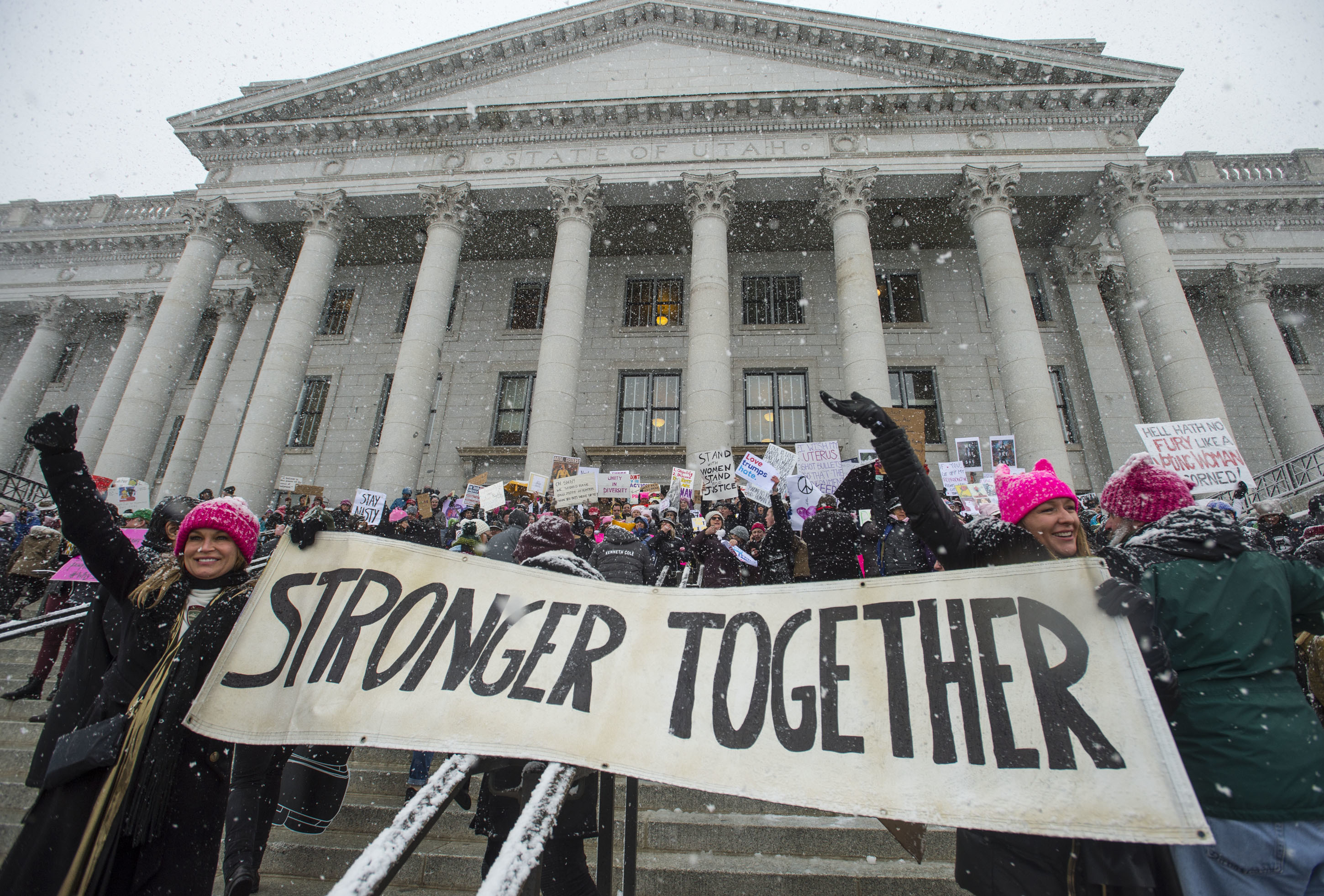
Feminism is taking on a broader meaning both across the country and in Utah.
The #MeToo movement on social media opened up dialogue on the prevalence of sexual assault and harassment. The women’s marches in Utah brought thousands in support of various gender and political topics. Provo’s first female mayor was sworn into office in January 2018. And now, more women than ever before are set to serve in Congress after the 2018 midterm elections.
Provo, although predominantly conservative, has shifted in its ideas of feminism over the past decade, according to BYU history professor Rebecca de Schweinitz. De Schweinitz moved to Provo in 2006 and since then she has seen an increased awareness of feminist issues such as sexual assault, body image, the wage gap and educational disparities.
“Provo and Utah and Mormon women have a long history of fighting for women’s rights,” de Schweinitz said. “There is still a lot of fear of feminism and what that means and what it looks like, but there is also a lot of commitment to some of the basic issues that women care about.”
BYU global women’s studies coordinator Valerie Hegstrom said she has seen a growing interest in women’s issues on campus. The number of students registered for the global women’s studies minors doubled between Fall 2016 and Winter 2018, totaling 81 students registered in January 2018. Between Winter 2011 and Winter 2018, the introduction to women’s studies class grew from less than 50 to 129 students, with more than 80 students on the waitlist, Hegstrom said.
According to Hegstrom, BYU has a comparatively strong women’s studies program, with more funding and resources than most universities in the southwestern U.S.
However, Hegstrom also acknowledged there are many in Provo who are cautious or afraid of feminism. She said this stems from fear of the radical feminism of the 1970s. While the majority of people want women to have happy lives, equal pay and freedom from sexual assault, Hegstrom said some people may be afraid to understand the root causes behind gender problems.
“Why do we have human trafficking in Utah? Why do refugees struggle in Utah? Why did we have the problems we did with rape kits going unexamined in Utah? Those kinds of questions are things that people might be afraid to think about or they don’t know how to ask the right questions,” Hegstrom said. “Sometimes, even though in their hearts they don’t want anything bad for women, they still continue to be a part of culture that does bad things to women.”
BYU teacher education professor Roni Jo Draper identifies as a feminist and said when she moved to Provo in 2000, she was surprised to find feminism was such a contentious term. She said students in her classes often start a sentence with the pre-emptive statement, “I’m not a feminist, but …” thus trying to avoid the negative connotation of the label.
Draper said people who don’t claim to be feminists are usually dismissing feminism based on rumors or miseducation, believing feminism to be a rejection of men, marriage or female childcare.
“I don’t think folks who are rejecting feminism understand that there are many ways to practice feminism — that feminism isn’t just one idea but it’s many ideas — and even within feminism there are people who don’t agree with some theories or some ideas,” Draper said.
De Schweinitz also emphasized the variety within feminism and said The Church of Jesus Christ of Latter-day Saints has embraced a type of moderate feminism, where female leaders are more involved in decision-making councils and have greater visibility within the hierarchy of the Church.
Hegstrom said some people assume feminism is a theory only helpful for women. In reality, though, men need it too.
“When we have problems with the way we deal with gender, those problems are problems for men and children as well as women,” Hegstrom said.
BYU graduate student Mo Elinzano came to Provo in 2016 after completing her undergraduate degree at New York University. Elinzano said she expected Provo to be completely conservative with hardly any feminist activism, but she has been surprised how many feminists there are.
Elinzano participated and volunteered in the 2017 and 2018 Utah Women’s Marches, and said she learned through those experiences that there are more people who care about feminist issues than she originally thought.
“We’ve come a long way with helping, especially those in Utah, with recognizing how important feminism and women’s rights are,” Elinzano said.
Hegstrom said stereotypes about feminism in Utah exist because individuals tend to think groups of people believe the same things and see the world the same way. However, Hegstrom, de Schweinitz and Draper all said Provo is not particularly different with its problems or advances in ideology.
“Feminism is happening here. I think we have some unique struggles, but to pretend that those struggles don’t exist elsewhere would be naive,” Draper said.
Graphic created by Kelsey Johnson




